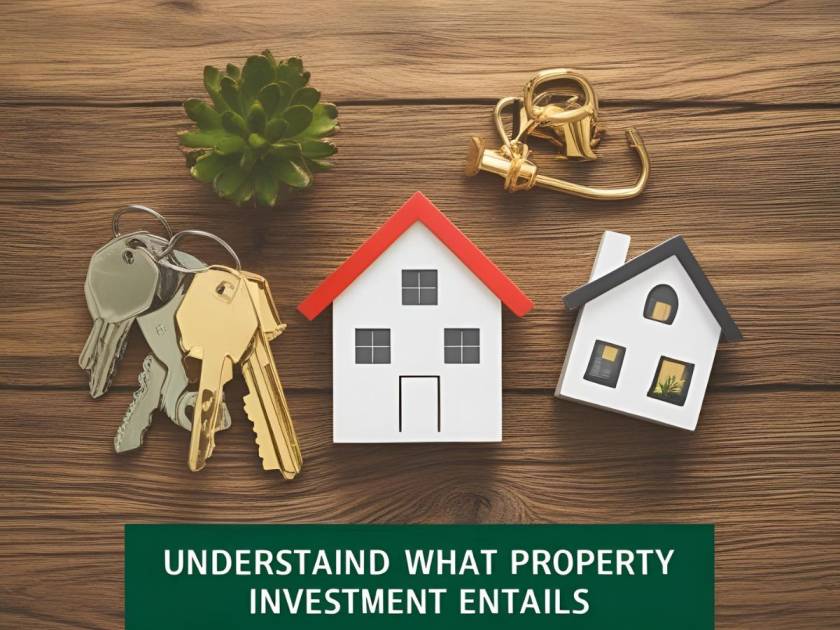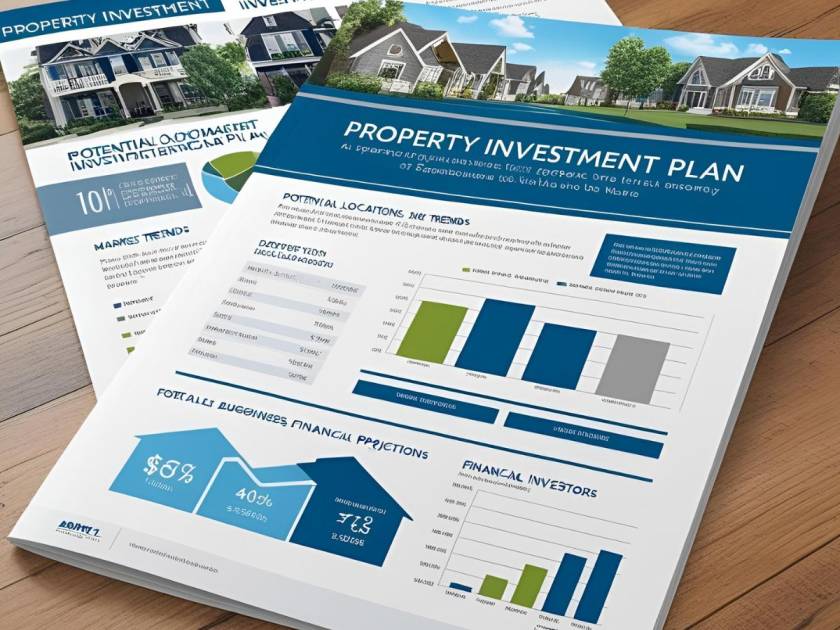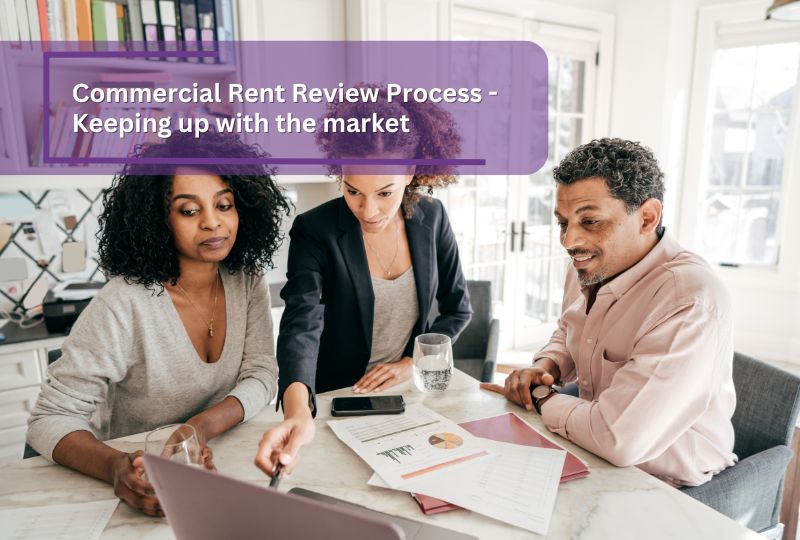Have you ever wondered how to start investing in property? While it’s widely referred to as one of the most reliable ways of generating wealth and securing financial freedom, stepping into the property market can be intimidating for new investors. The good thing is that with the right strategies, knowledge, and mindset, anyone can effectively invest in the property market and reap huge returns.
The potential of the lucrative property market as an attractive investment opportunity cannot be overstated. If you’re looking to build passive income, substantial equity, or enjoy steady capital growth over time, investing in real estate can help you achieve those goals. Whether it’s a small flat, a suburban home, or a commercial unit, starting with the right type of accommodation can set the tone for your success. Many beginners begin their real estate investing journey with modest purchases, slowly building confidence before moving on to more complex projects.
In this guide, you’ll learn how to get into property investment through clear, actionable steps, making it easier for you to progress from a beginner to a confident investor.
Why Invest in Property in Scotland, UK?
Investing in UK property provides both long-term capital appreciation and a steady rental income. Over time, property prices in many areas of the UK have increased steadily, offering investors the chance to build wealth. Unlike the stock market, where values can fluctuate dramatically in a single day, property generally changes at a slower, more predictable pace. This stability makes it appealing to those who prefer low-risk investments over high-risk options.
Property is a physical asset that can be improved, extended, or redeveloped to add value. Many successful real estate investors not only buy and hold but also work actively on their properties to maximise returns. In the UK, high rental demand creates plenty of opportunities for both experienced and new rental property investors. Combined with favourable financing options ranging from standard mortgages to buy-to-let investment loans, it is possible to enter the market with a clear growth strategy.
How to get into Property Investing?
Now that you’re aware of the benefits of investing in UK property, including long-term growth, steady rental income, and portfolio diversification, let’s dive into how to get into property investment.
1. Understand What Property Investment Entails

Investing in property entails buying property to realise a return on investment in the form of rental yields, appreciation, or both. Property stands out from other forms of investment like shares and bonds because it calls for more management and insight into market trends. You will have a hands-on role as a property investor by participating in ownership, leasing, and property management to make a profit.
Key Types of Property Investments:
- Residential Property: Single-family homes, flats/apartments, and townhouses rented long-term or short-term.
- Commercial Property: Office buildings, stores, and warehouses that typically offer higher returns.
- Holiday Rentals: Properties that are rented short-term for holiday use, typically offering seasonal revenues.
- Real Estate Investment Trusts (REITs): REITs is a passive investment option, allowing you to invest in property through publicly traded funds.
- Real Estate Investment Groups (REIGs): A more active investment, usually with a higher entry cost (e.g., £5000) than REITs, offering joint ownership in larger properties.
Additional reading: Comparing residential vs. commercial properties can give you a clearer idea of which investment strategy suits you.
2. Set Clear Investment Goals

Once you’ve decided to invest, it’s important to choose an approach that matches your goals and budget. Some investors prefer the “buy and hold” method for steady rental income, while others take on property development projects, buying older or underused buildings, renovating them, and then selling or renting at a higher value. Development projects can be more hands-on, but they often lead to higher profits if done wisely.
Common Investment Strategies:
- Buy and Hold: Purchase property to rent, building equity over the long term for consistent income.
- Fix and Flip: Buy undervalued properties, renovate them, and sell them for a profit.
- Real Estate Investment Trusts (REITs): Expose to the property market without needing to manage physical properties.
3. Assess Your Financial Situation

Before making a purchase, it’s important to understand the true costs involved. Beyond the purchase price, property taxes and legal fees can have a significant impact on your budget, so knowing these upfront helps avoid unwelcome surprises later. When planning a long-term exit strategy, it’s also important to consider how market fluctuations may affect a property’s value. While appreciation over time can generate healthy profits, sudden depreciation could reduce them. Additionally, if you plan to sell, any gains may be subject to capital gains tax, which should be included in your profit calculations.
Key Financial Considerations:
- Credit Rating: A higher rating can help you achieve better finance rates.
- Savings: Typically, you’ll need at least 20-40% for a deposit, depending on the investment sector.
- Emergency Fund: Always set aside extra money for unexpected expenses.
4. Research the Property Market

Good investments start with good research. Study different areas, compare property prices, and see where demand is strong. For those investing through Real Estate Investment Trusts (REITs), it’s also worth checking the net asset value of the fund. This helps you see whether the shares are priced fairly compared to the properties it owns. Knowing this can stop you from overpaying and improve your long-term returns.
Key Factors to Consider:
- Location: Look for proximity to amenities, schools, transportation infrastructure, and other facilities in the local area.
- Market Trends: Analyse the historical price movements and future price forecasts.
- Tenant Demand: Look for areas with high demand as they tend to have more stable returns.
5. Create a Property Investment Plan

A clear and well-planned approach is key to staying organised and focused on your property investment journey. Building a property portfolio is essential as part of your investment strategy. A well-managed property portfolio can lead to financial freedom and increased income. Your plan should comprise your investment objectives, timeline, budget, and exit strategy.
Important Elements:
- Investment Objectives: Set out your short- and long-term goals.
- Budget: Add the cost of purchase, cost of renovation, and maintenance costs.
- Exit Strategy: Prepare for possible selling, refinancing, or long-term holding of the property.
6. Explore Financing Options

Knowing your options for financing is an important step in property investing. The appropriate loan can determine your cash flow, profitability, and long-term viability. Mortgages need to be included as part of your overall financial planning, with rent payments being enough to service mortgage repayments in addition to other expenses.
- Fixed-Rate Mortgages: Provide predictable, certain payments over the term of the loan.
- Interest-Only Mortgages: Reduced initial payments, but the loan amount is not repaid.
- Buy-to-Let Mortgages: Specifically designed for rental properties, ideal for generating income.
- Private Lenders: A convenient option for investors who have uncommon financial situations.
7. Start Property Hunting

With your finances in place, it’s now time to identify properties that serve your investment purposes. Surf through the web portals, visit open houses, attend auctions, and meet property agents to gather local information.
Key Tips for Property Selection:
- Inspect Thoroughly: Look for structural defects and required repairs.
- Analyse Potential: Review rental returns and long-term growth potential.
- Compare Properties: Assess similar properties in the area to determine market value.
- Leverage Expert Insights: Collaborate with estate agents to uncover hidden opportunities.
8. Conduct Due Diligence

Before committing to a property, thorough due diligence is essential. It prevents you from costly mistakes and causes you to make a solid investment. If needed, consider consulting a property investment company for professional guidance.
Key Areas to Investigate:
- Legal Checks: Verify ownership, planning restrictions, and any potential legal issues.
- Financial Analysis: Calculate expected returns, rental income, and associated costs.
- Property Inspection: Get the property inspected by a Chartered Surveyor and verify for maintenance needs.
- Taking the time to conduct these checks can save you from unforeseen challenges down the road.
9. Finalise the Property Purchase

Once you’ve completed due diligence and are confident in your investment, it’s time to finalise the purchase.
Key Steps to Take:
- Negotiate the Price: Support your offer with market data and obtain the best deal possible.
- Arrange Finance: Finalise your mortgage or loan application with your lender.
- Finalise Legal Documents: Engage a solicitor or conveyancer to review and finalise all documents.
With these steps completed, you’ll officially become a property owner and can move forward with your investment plans.
10. Manage Your Property Investment
Effective property management plays a key role in maximising returns and maintaining your property’s value. You can either manage it yourself by taking care of tenant communication, maintenance, and finances, or hire a professional property manager who can handle these tasks for you, making the process more convenient and stress-free.
Key Tasks to Focus On:
- Tenant Screening: Find trustworthy, long-term tenants.
- Property Maintenance: Schedule regular upkeep to avoid costly repairs later.
- Rent Collection: Use reliable systems to track payments and handle any delays in your rental income.
11. Monitor and Optimise Your Portfolio
Being well-informed ensures that you adjust your strategy to suit changing market conditions. Following market trends, government policies, and shifts in interest rates enables you to make adjustments in time. Reinvesting returns, refinancing, or diversifying the portfolio optimises returns, while Real Estate Investment Trusts (REITs) offer a hands-off approach. It is always best to regularly review portfolios and strategic adjustments to help optimise your property portfolio.
Also read: Best Commercial Property Types for Portfolio Growth
Here’s how to monitor and optimise your investments:
- Track Rental Income vs. Expenses: Ensure steady cash flow.
- Analyse Property Value Changes: Stay updated on market shifts.
- Monitor Tenant Satisfaction: Happy tenants ensure long-term stability.
- Stay Informed: Monitor trends, regulations, and interest rates to refine your strategy.
12. Understand the Risks
It is crucial to understand the risks of investing in property to achieve long-term success. As with any form of investment, real estate has associated risks, but through active management, these risks can be reduced.
Common risks include:
- Market Fluctuations: Property values can rise or fall, affecting profitability.
- Vacancy Periods: Unoccupied properties earn no rental income, which affects cash flow.
- Unexpected Costs: Maintenance, repairs, or legal disputes can arise unexpectedly.
- Tenant Issues: Problematic tenants or vacancies can disrupt your income stream.
To help offset these risks, consider:
- Diversifying Investments: Spread your investment across different property types and locations to reduce exposure to market fluctuations.
- Maintaining a Contingency Fund: Have funds available for emergencies, such as unexpected repairs or vacancies.
- Staying Updated: Keep yourself informed about market trends, regulations, and property laws to anticipate and manage potential issues easily.
13. Off-Plan Property Investment
Investing in off-plan properties is another way to get started in real estate investing. This involves purchasing a property before it’s built, often at a lower price than completed homes, with potential for capital growth by the time construction is finished. For property investors, off-plan opportunities can offer both future rental income and long-term appreciation.
Key Points to Consider:
- Choose a Reputable Developer: Ensure the developer has a strong track record and delivers projects on time.
- Research the Location: Even before construction, the location will influence future demand and rental potential.
- Understand the Risks: Delays, market fluctuations, or changes in property value can affect returns, so it’s important to plan for contingencies.
- Secure Financing Carefully: Off-plan properties may require staged payments, so make sure your finances are well-organised to meet deadlines.
Make an Informed Investment: Partner with Westport Property for Success.
Property investment is one of the best ways of building long-term wealth and ensuring your future, but it is important to do so with the correct knowledge and strategy. Whether you’re a first-time buyer or an experienced investor, understanding all available support, including grants for homeowners, can make a big difference to your success. At Westport Property, we know the Scotland, UK property market inside and out, and we’re here to help you navigate every step of the journey. The key to success in property is knowing the market, setting clear goals, and making informed decisions along the way. Take your time to do your research, seek the right advice, and stay focused on your long-term vision. With the right approach, property investment can be your path to financial freedom.
Have A Question or Need Some Help?
Whether you're searching for the perfect rental property or a landlord wanting advice on letting, we're here to assist. Feel free to call our office or send us an email, and we'll be happy to help you with any queries you may have.
FAQs:
How to start off investing in property?
To start investing in property, begin by assessing your finances, researching the market, and securing financing. Choose an investment strategy like buy to let or property flipping. Conduct due diligence before purchasing, and decide whether to self-manage or hire a property manager.
How to invest 20k in property in the UK?
Use £20k as a deposit for a buy-to-let mortgage, invest in property crowdfunding, or buy into Real Estate Investment Trusts (REITs). Joint ventures or flipping low-cost properties can also maximise returns.
How do I get involved in property investment?
Start by learning about the market, saving for a deposit, and exploring mortgage options. Choose a property type, build a network of real estate professionals, and consider beginner-friendly options like REITs.
How much money do you need to start a property investment?
The amount required for property investment depends on the strategy you choose. Lenders require a 20-25% deposit, plus legal fees for buy-to-let. Flipping properties may require £50k+, while REITs and crowdfunding start from £500. Joint ventures can help lower individual costs.
What is 2% rule for retirement?
The 2% rule for retirement suggests withdrawing 2% of your savings each year to reduce the risk of running out of money. It’s more cautious than the 4% rule, offering greater security but less annual income, making it best for those with large savings or extra income sources.
Can I get a mortgage with a 20k salary in the UK?
In Scotland, it is possible to get a mortgage on a £20,000 salary, though the amount you can borrow will be limited. Most lenders offer around 3 to 4.5 times your income, meaning you could qualify for a mortgage between £60,000 and £90,000. Lenders will also consider your credit history, monthly expenses, deposit size, and employment stability. Saving for a larger deposit, maintaining a good credit score, and exploring first-time buyer schemes can increase your chances of approval and help you get better mortgage terms.



 Find a Property Sale/Rent
Find a Property Sale/Rent  Letting Agents
Letting Agents  Asset Management
Asset Management 






